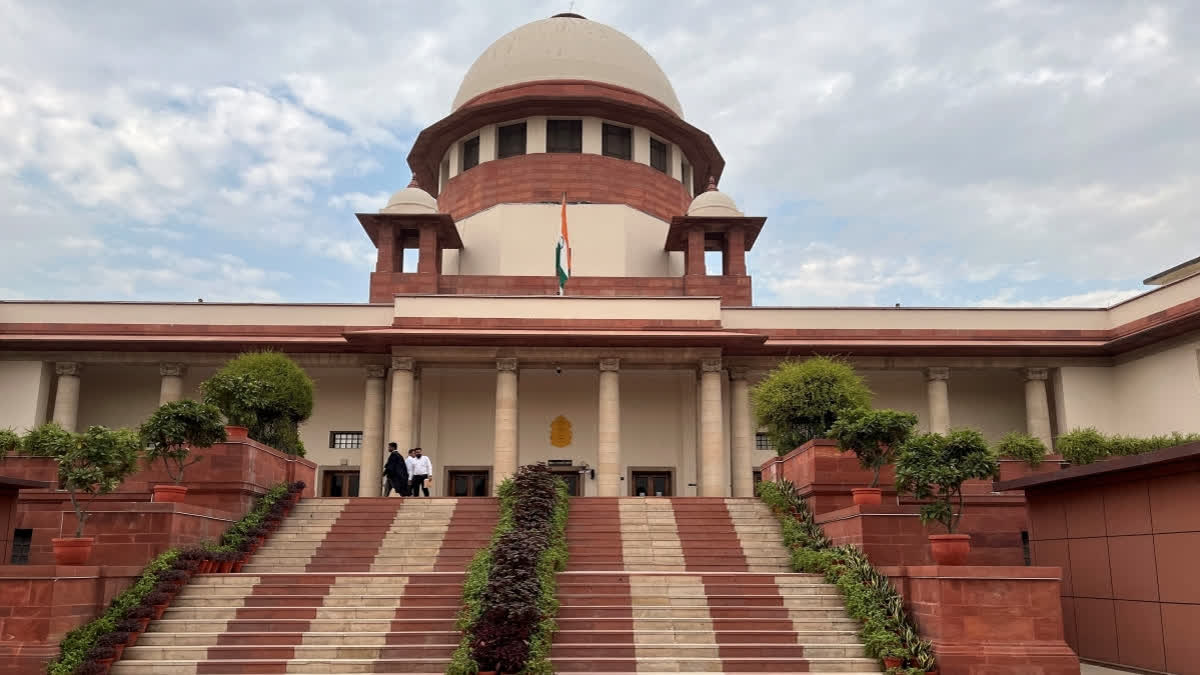New Delhi: The Supreme Court Thursday, while hearing petitions challenging the constitutional validity of section 6A of the Citizenship Act relating to illegal immigrants in Assam, shot a volley of questions at the Centre. The apex court said it wants to know the extent of illegal immigration to Assam post-1971 and what is the Centre doing to ensure an impermeable border. The apex court also sought a response from West Bengal on illegal immigration
A five-judge bench led by led by Chief Justice of India D Y Chandrachud asked Solicitor General Tushar Mehta, representing the Centre, what is the data with the government, on illegal immigration post-1971. Do we have that data?
Mehta said my answer and not the government’s answer, was that Assam faced the problem and raised it, as culturally Bangladeshis and Assamese were so different that it was easy to identify. “In the case of Bangladesh, their language, their food habits, their dressing everything, they mingle very easily. Because of that maybe there is no uproar or something that does not justify the government not taking steps. I must admit”, said Mehta, adding that he was referring to Bengal.
The CJI said the petitioners’ argument is what you did to Assam, the same was not done to West Bengal. “But beyond that now, we are going beyond the validity argument. First, we want to know, what was the reason for the Parliament to exclude West Bengal for the grant of citizenship. We are not saying that they should have granted it. What led us to believe that this problem is peculiar to Assam and not Bengal…why did we leave West Bengal alone?”, queried CJI.
The CJI further queried, second, what is the extent of illegal migration post-1971 and what is the government doing in West Bengal? Mehta my preparation for the validity part and the legal part and the matter may not end today and “I undertake to file an affidavit…latest by tomorrow or the day after”.
The CJI said “We like an updated statement from the government of India and let the Home Secretary apply his mind to this: what is the government doing to safeguard the border, in terms of border fencing? How far is the border fencing….”. The apex court response from West Bengal on illegal immigration.
The CJI asked Mehta Why did you single out Assam when West Bengal shares a relatively larger border with Bangladesh and why weren't migrants from Bangladesh given citizenship in West Bengal? Why allow this only for Assam? Do we have any data to indicate that illegal migration in Bengal was minimal, therefore it was left?
The bench, also comprising justices Surya Kant, M M Sundresh, J B Pardiwala and Manoj Misra, asked if we affirm Section 6A, what have we done post-1971? Justice Sundresh asked Mehta, how do you propose to deal with illegal immigration at least after 1971?
The CJI observed that India is not some authoritarian country and we have to go by the rule of law, and if not followed then genuine people may be thrown out. The CJI asked Mehta, “What is the government doing to ensure that you have an impermeable border, what is the investment to make sure the border becomes impermeable, what are the executive steps the government is taking? To what extent border has been fenced? We want to know; this is a crucial problem independent of 6A…”.
The hearing on the matter will continue in the afternoon session. The apex court is hearing 17 petitions to examine the constitutional validity of section 6A of the Citizenship Act relating to illegal immigrants in Assam. Section 6A in the Citizenship Act was inserted as a special provision to deal with the citizenship of people covered by the Assam Accord.



